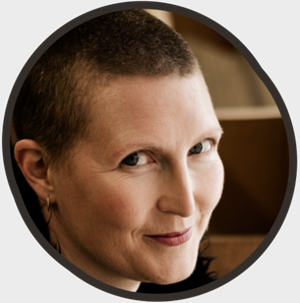Mimicry 2 edited by Holly Hunter
(2017). ISSN 2463-6460. RRP$15. Paperback. 72 pages.
We all stopped loving each other one night around 8.30.
(“The Siege of Corinth”)
Seriously. Seriously. How brilliant an opening to a short story, to a journal, is that?? Sharp-intake-of-breath, wait-what?!?, you’ve-got-me levels of feckin’ brilliant, that’s how brilliant.
The rest of Sebastian Morgan-Lynch’s short story, “The Siege of Corinth”, completely and utterly lives up to the promise of that first line. This is a story that has been crafted, the words placed carefully. It is, quite frankly, spectacular. The only thing that ever snagged for me was the title itself. Usually I’m a back-and-forth flipper of poetry books and literary journals, rather than a cover-to-cover reader, so if a title doesn’t grab me, especially for short stories, I mightn’t pause in my flipping. But I’ve no idea what other possibility might exist for this story; the title tells the reader something and nothing of what is ahead.
Mimicry 2 also ends with a wallopingly glorious punch. Henrietta Bollinger’s “In and Out of Taxis” is a choose-your-own dialogue with taxi drivers and the repetitive conversations that can be had — especially if the passenger has a superficial difference.
Your wheelchair is so heavy / different / interesting.
You had an accident? / Were born like this?
I’m sorry.
You are a smart / brave / good girl.
I was fortunate enough to have seen an earlier version of this poem, when it was being workshopped at Victoria University’s Iowa Poetry Workshop. I’m sorry that some of the lines from the original were culled, and one new line — ‘Born ‘n’ bred. They had cabs here in 1840. Horses’ — doesn’t sit right with the rest of the poem. But overall, this is a beautifully worked piece; the repetition of the ‘You are a smart / brave / good girl’ line throughout in particular is delicious.
Sadly, in between these two kauri of word strength, the journal overall is a bit underwhelming. Editor and publisher Holly Hunter wrote in a piece in Pantograph Punch that ‘Mimicry is speaking to and for the next generation of New Zealand artists and readers in an effort to help local literature evolve’. Which is a fantastic reason-to-be, but I’m not exactly sure where Mimicry is evolving it to.
There are a handful of beautiful moments. Chris Tse’s “Punctum” is refined and easy and a good kind of crazy, such as when the speaker talks about their potential children’s acting auditions (the list of auditions is marvellous) and careers:
But in all likelihood my children will have only
moderately humble acting careers playing
accountants, taxi drivers and restaurateurs
to supplement their primary incomes as
accountants, taxi drivers and restaurateurs.
The first of Livvy Nonoa’s “Los Haiku Incompletos” made my neurons jitter with the imagery:
Loving made me dull;
a tired old pencil end
Overall, for me, the short stories are stronger than the poems. I’m all for evolving writing and making poetry more accessible (trust me, I’ve ranted plenty of times about how I don’t understand poetry, when it’s thickly veiled and requires a magic key to reveal itself). But maybe the evolution being sought here isn’t towards accessibility; I just don’t know what the evolution is.
More than anything, Mimicry 2 made me long for JAAM, which sought to showcase a range of (new) voices. But JAAM was more polished; Mimicry 2 feels like a high school or first-year uni project, to publish a group of friends’ writing. I really wanted to like it. I really wanted to find fantastic new voices, saying new things (or even old things) in great ways. I didn’t. It is, in Hunter’s words, ‘…mixed metaphors and earnest, overwritten sentences…’. We’ve all written mixed metaphors, we all have overwritten, painfully earnest work sitting in a folder (go on, admit it, you do). But I am grateful to every editor who said ‘thanks, but no thanks’ (even if it takes time to find that gratitude) because that pushed me to find stronger, uglier ways of writing. For me, evolution doesn’t mean sloppy. I hope other editors will say no and these writers will push to find something better.
I do hope that the (r)evolution is coming. But let the words be strong, so that the change can be truly heard.
First published in a fine line (New Zealand Poetry Society magazine) (2019)




